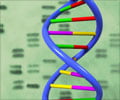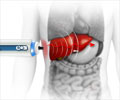Cystic fibrosis must be considered as two diseases- one that affects many organs including lungs, and other than doesn't affect the lungs at all, researchers claim

"There are other kinds of mutations of CFTR, but these were deemed to be harmless because they didn't cause lung problems," Dr. Whitcomb said. "We examined whether these variants could be related to disorders of the pancreas and other organs that use CFTR channels."
Co-senior author Min Goo Lee, M.D., Ph.D., of Yonsei University College of Medicine in Seoul, Korea, conducted careful tests of CFTR in pancreatic cell models and determined that a molecular switch inside the cell called WINK1 made CFTR channels secrete bicarbonate rather than chloride molecules.
"Pancreas cells use CFTR to secrete bicarbonate to neutralize gastric acids," Dr. Whitcomb said. "When that doesn't happen, the acids cause the inflammation, cyst formation and scarring of severe pancreatitis."
The research team found nine CFTR gene variants associated with pancreatitis after testing nearly 1,000 patients with the disease and a comparable number of healthy volunteers. They also learned that each variant could impair the WINK1 switch to prevent CFTR from becoming a bicarbonate-secreting channel.
Co-senior author Ivet Bahar, Ph.D., Distinguished Professor and John K. Vries Chair of Computational Biology, Pitt School of Medicine, built a computer model of the CFTR protein's structure and determined that all the nine variants alter the area that forms the bicarbonate transport channel, thus impairing secretion of the molecule.
He added that identification of the mechanisms that cause the conditions make it possible to develop treatments, as well as to launch trials to determine if medications that are used by CF patients might have some benefit for those who do not have lung disease, but who carry the other mutations.
Source-Eurekalert
 MEDINDIA
MEDINDIA


 Email
Email







